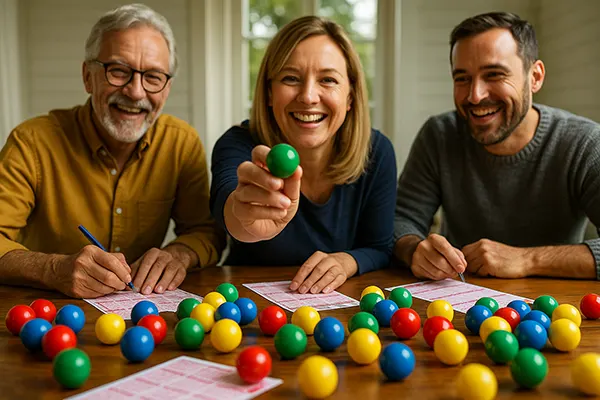Lotteries are a global phenomenon, but the way people engage with them varies significantly across cultures. In this article, we examine how national traditions and cultural contexts shape the popularity and formats of lotteries in Japan, Brazil, and Finland. The findings highlight that lottery habits are deeply intertwined with each country’s social values, historical context, and even national holidays.
Lottery Culture in Japan: Discipline and Structure
In Japan, lotteries are known as “takarakuji” and are governed by strict rules set by the government. These lotteries are often tied to public welfare causes, with revenues partially directed toward community projects. This mirrors Japan’s collectivist values, where participation in national initiatives is culturally reinforced.
Japan’s major lotteries like the “Jumbo Takarakuji” are aligned with specific seasons or national events. For instance, the year-end Jumbo draws see enormous participation. Traditional beliefs in luck, such as auspicious dates and zodiac signs, influence when and how tickets are bought.
Despite Japan’s reputation for technological innovation, most tickets are still purchased in person at booths. This points to a national preference for trust, familiarity, and ritual in gambling practices, rather than convenience alone.
Modern Adaptations and Digital Shifts
While online purchases are available, digital lottery uptake remains low compared to global trends. Concerns over security, identity verification, and cultural attitudes toward online gambling contribute to this restraint.
Nevertheless, young Japanese players are beginning to shift toward digital channels, especially during national emergencies or health concerns like the COVID-19 pandemic. This illustrates an evolving yet cautious relationship with modernisation.
Overall, Japan’s lottery system is a blend of conservative values and slow-moving innovation, rooted in order, trust, and community orientation.
Brazil: Community Spirit and High-Stakes Tradition
In Brazil, lotteries have become a part of everyday life. The most famous national lottery, “Mega-Sena,” regularly captures national attention, especially during the “Mega da Virada” – a special New Year’s Eve draw. The huge jackpots and celebratory atmosphere reflect Brazil’s love for community events and shared experiences.
Purchasing lottery tickets is a social activity in Brazil. Kiosks are ubiquitous and serve as community hubs. Conversations around numbers, dreams, and predictions are common, often rooted in folk beliefs and numerology.
Moreover, Brazilians tend to invest collectively in lottery pools or “bolões,” reflecting the country’s collective cultural orientation and economic realities that favour group participation for higher chances at winning.
The Role of Faith and Optimism
Faith and luck play a large role in how Brazilians view lottery participation. Many players associate ticket buying with religious practices or personal rituals, such as lighting candles or saying prayers.
This spiritual undertone is part of a broader culture of optimism and hope. Despite economic challenges, the lottery offers an imagined route to upward mobility, making it both a fantasy and a shared dream for many.
Importantly, lottery revenues also fund public initiatives, including education and infrastructure, adding a civic layer to the activity.

Finland: Transparency and Responsible Play
Finland’s lottery system, operated by Veikkaus Oy, is considered one of the most regulated and responsible in the world. The Finnish approach to gambling is marked by transparency, public benefit, and moderation.
Lotteries are embedded in national life, with proceeds supporting cultural, educational, and sports initiatives. The government’s monopoly ensures strict regulation, promoting ethical gambling and minimising addiction.
The typical Finnish lottery player is pragmatic. Tickets are often bought during weekly routines—at supermarkets, petrol stations, or through the official Veikkaus app. There’s less emphasis on superstition, and more on habit and routine.
Digital Integration and Social Awareness
Finland has embraced digital lottery formats early on, integrating them seamlessly into banking and digital ID systems. This efficiency is consistent with Finland’s high level of trust in institutions and digital governance.
Gambling education is part of the national curriculum, and support systems for gambling issues are well-funded. This ensures that lottery participation remains healthy and well-informed.
The Finnish model illustrates how national values of transparency, fairness, and community support can shape a uniquely responsible gambling culture.